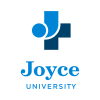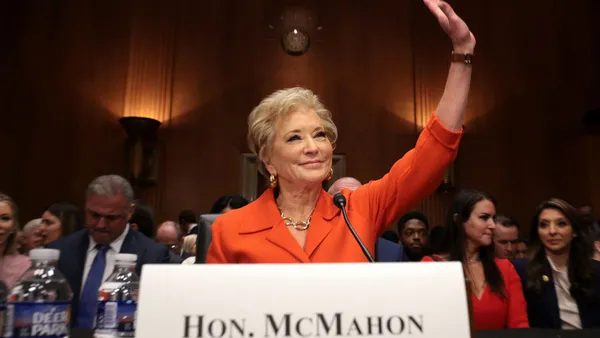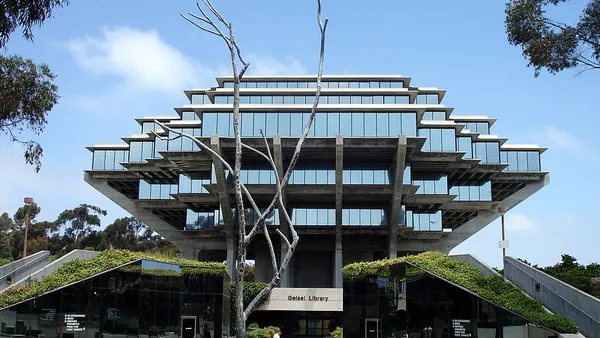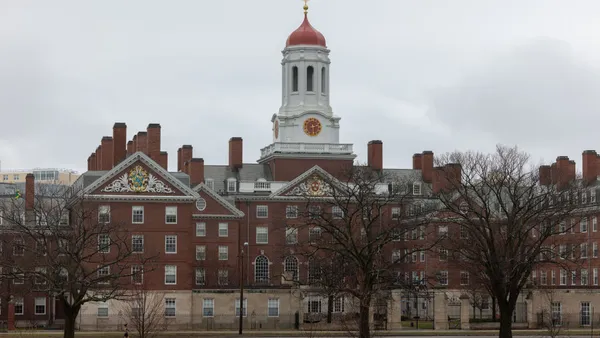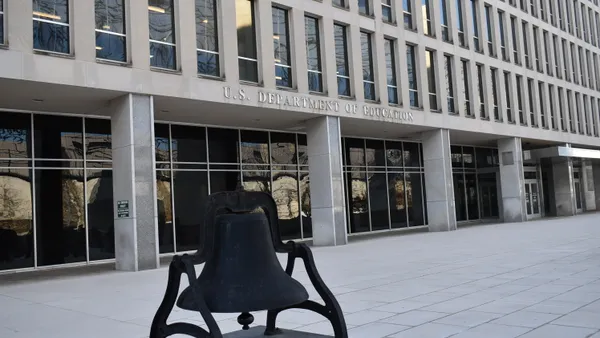Dive Brief:
- Student loan borrowers who would stand to benefit the most from income-driven repayment plans, or IDRs, are less likely to know about them, according to a new report from left-leaning think tank New America.
- Around 2 in 5 student-debt holders earning less than $30,000 a year reported being unfamiliar with the repayment plans. Under a proposed plan from the U.S. Education Department, IDR minimum monthly loan payments for low-income earners, such as this group, could drop to $0.
- Just under half of borrowers in default had not heard of IDRs, despite the plans offering a pathway to becoming current on their loans, the report said. Only one-third of currently defaulted borrowers had ever enrolled in IDR.
Dive Insight:
The Education Department requires most borrowers using IDR to pay 10% of their discretionary income each month toward their student loans. But in January, the agency proposed a plan that would drop the percentage to 5% and allow borrowers earning less than $30,500 annually to pay nothing until they surpassed that income cap.
Education leaders have praised the proposal, but congressional Republicans immediately lambasted it, in part because the nonpartisan Congressional Budget Office estimates it will cost at least $230 billion.
The Education Department intends to finalize the rule later this year.
If the changes are implemented, communicating the new eligibility and rules to vulnerable borrowers will need to be prioritized, according to New America. The department should automatically provide IDR information and access to borrowers.
It's crucial the Office of Federal Student Aid receives sufficient funding to undertake the recommended communications efforts, New America said. This year, FSA may struggle to fulfill its directive without significant increases to funding.
President Joe Biden’s current budget proposal for fiscal 2024 includes $2.7 billion to the office, an year-over-year increase of $620 million.
Among borrowers, 45% have enrolled in an IDR at some point, and around 90% said they could only afford their loans under the plan, according to the report.
Low-income, low-balance and defaulted borrowers are more likely to enroll in IDR if they're familiar with it, the report said.
Researchers surveyed 1,156 student loan borrowers — those not currently in college who took on debt to pay for their education — from April 19, 2022 to May 19, 2022 as part of New America's annual Varying Degrees survey.
Respondents who borrowed the lowest amounts for their education were the least likely to know about the repayment plans. Just over half of respondents who borrowed under $20,000 knew about IDRs, compared to 93% of those who took out student loans totaling $75,000 or more.











